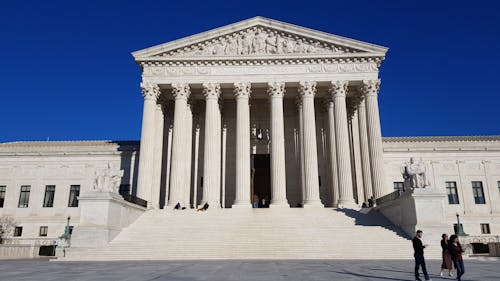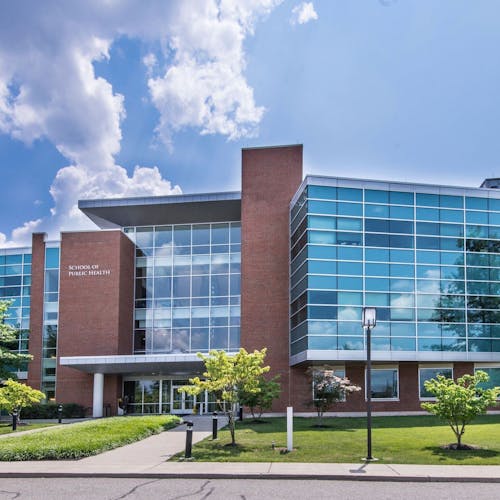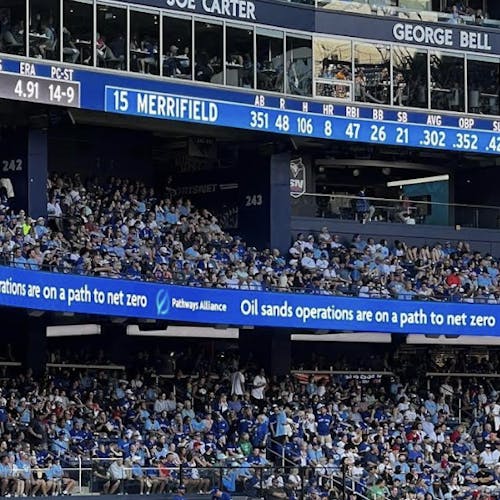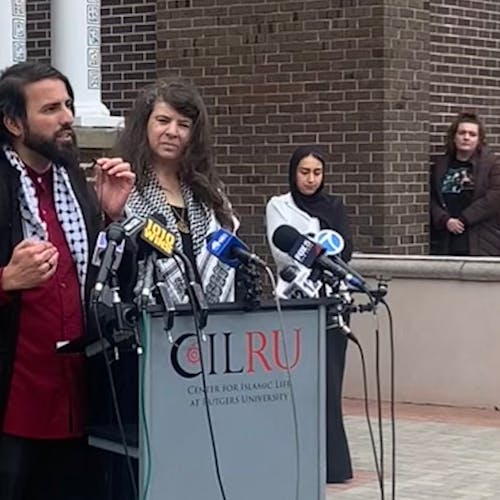Rutgers club hosts event discussing Supreme Court cases

The Rutgers American Enterprise Institute (AEI) Club hosted an event at Alexander Library on Friday titled, “The 2020 Supreme Court Docket: A Discussion.” The event featured Adam White from the AEI and Antonin Scalia Law School at George Mason University as well as Professor Jo-Leo Carney-Waterton from the Rutgers Department of Political Science.
White and Carney-Waterton discussed the current Supreme Court cases and their stance on these specific cases. White prefaced the discussion and said there is always going to be vagueness in the law, making it open to interpretation.
The Supreme Court case, Altitude Express, Inc. v. Zarda, was discussed from the outset. The case was raised due to the contention of whether discrimination on the basis of one’s sexual orientation and gender identity in the workplace is unconstitutional. In other words, it brings to question whether they will be covered or protected under Title VII of the Civil Rights Act of 1964.
“The way that case is framed is going to make all the difference in the world. Justice (Neil) Gorsuch seems sympathetic to the idea that when you are fired on the basis of a same-sex relationship, you are being fired for not being the proper sex,” White said.
Carney-Waterton said he believes that the court is going to agree that Title VII protects members of the LGBTQ+ community from being fired or discriminated against based on sexual orientation.
Other court cases were discussed, many of which Carney-Waterton and White agreed on in regard to predicting the outcome of such cases and where they stand on the issues.
White and Carney-Waterton also shared their position regarding affirmative action in a case that was not brought up in the Supreme Court yet but has been filed in the appeals circuit of Massachusetts. The case concerns race-based admissions.
Carney-Waterton said that affirmative action is a topic which he is very passionate about discussing.
“The case essentially involves Harvard (University)’s admissions screening standards of which race is one of them. What we have are Asian students who are contending that they do not receive as high as points as their white and African American co-applicants,” Carney-Waterton said.
Carney-Waterton said he believes that classrooms should be preparing students for a multicultural and diverse society and that individuals from different ethnic and racial groups help enrich that experience for students. He said it is admirable that Harvard University considers race as a factor when admitting students, albeit not the only factor, because they ultimately understand the role diversity plays in regard to education.
Carney-Waterton also said that he is nervous about the outcome of this case because there is a possibility that affirmative action could be declared unconstitutional.
White said he thinks if the case goes to the Supreme Court, Harvard University will lose the case. He said Harvard University’s admissions office made basic presumptions about different demographic groups and believes the Supreme Court will say that Harvard University was in violation of civil rights laws.



